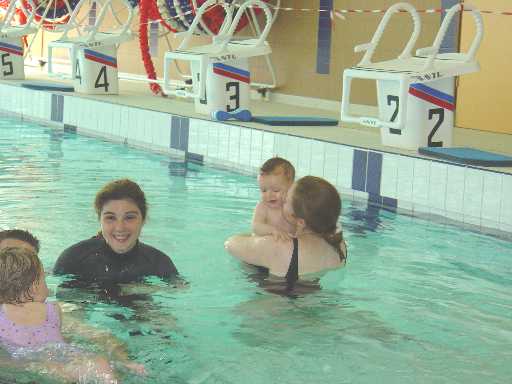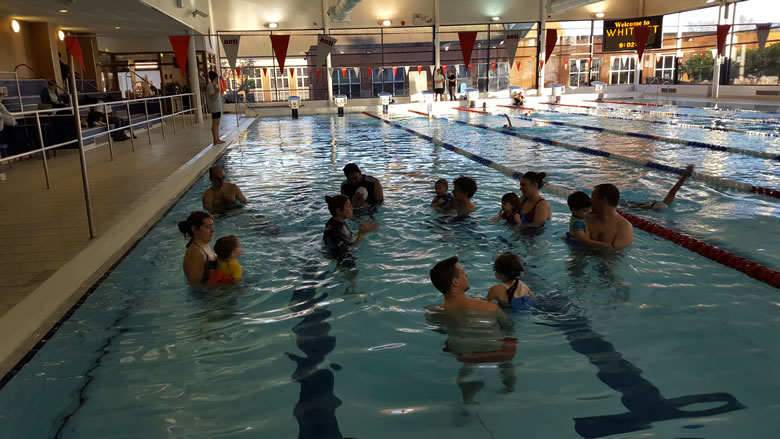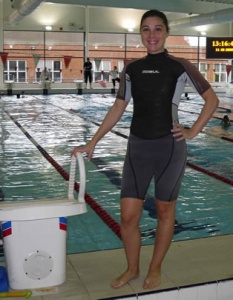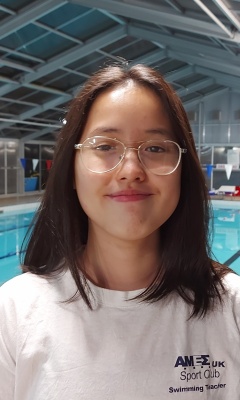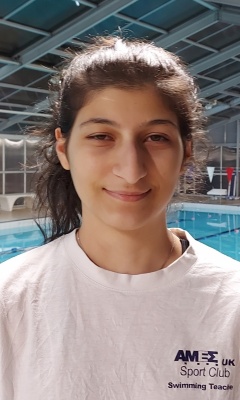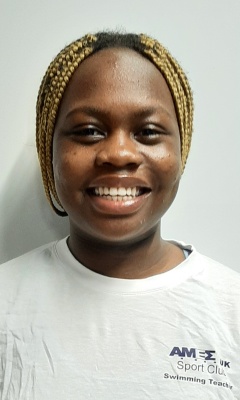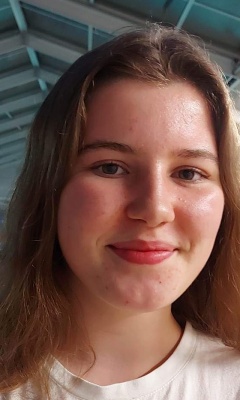Parent Toddler/Baby Classes
Taking your Baby for Swimming
Dear Parent/Guardian
I thought you might like some advice and guidance around introducing your baby to swimming. Nothing mentioned below is a hard and fast rule but merely a collection of recognised “Best Practices” and general advice.
I hope you find this information of benefit.
Vicky
“Mission statement: The mission of AMES UK Swim School is to provide all swimmers, children and adults, with a memorable, high standard and positive swimming experience. Our caring, well-trained and experienced staff will work on positive reinforcement, support and technical practice in order to built confidence in the mental and physical well being of the swimmers. ”
Vicky Panagiotidou
Swimming with your baby. When can I start?
Getting your baby used to water early is important from a safety point of view and it’s great fun too.
“Your child won’t be co-ordinated enough to learn to swim properly until he is two or three, but you can get him to feel confident and relaxed in the water and make swimming a fun way to exercise for both of you,” says midwife and health visitor Julia Youll.
Swim England encourages babies from 4-6 months old to be taken to the swimming pool. Babies from approximately 5 months old are able to splash around in the warm water with their mother or father whilst learning to build up their confidence.
What does the baby need to wear?
Swim nappies are a good precaution but aren’t actually compulsory in most swimming pools. If your child is reliably toilet trained, then obviously you don’t need the swim nappies. However, if your child isn’t, then I recommend that you should consider having them in order to avoid any ‘accidents’. Most pools do insist that babies wear a swimming costume of some kind though, in fact I don’t know of any in the UK that doesn’t. Water wings aren’t suitable for babies under one year but there are other swimming aids available for this age group however, as you will be in contact with your baby at all times, these will not be necessary.
What you’ll need to take to the pool.
- A warm bottle for after the swim if you are bottle-feeding is a good idea
- A towel, preferably one with a hood or a towelling dressing gown
- A snack if your child is weaned— swimming makes babies hungry
- Don’t forget your nappy bag
Introducing your baby to water
Here’s how you can help your baby learn to enjoy splashing about in water:
- Make bath time fun. Gently splash water over his body or head, or lay him on his back and move him gently through the water
- Ask a friend to come with you or join a mum and baby session. If you feel relaxed and confident, your baby will too
- When you first get in the pool, make sure that your baby’s face is close to yours and that you have eye contact whilst holding baby close to you. As you both relax and feel more confident you can extend your arms and swish your baby around in the water
Making water fun
Here are some ways to help your baby enjoy the water and learn the basics of swimming:
- Let your baby splash and play with his bath toys — throw one a few feet across the pool and ‘zoom’ him through the water to retrieve it
- Put your mouth under water and show your baby how to blow bubbles. This is an important lesson for babies to learn, as they can’t inhale water if they are blowing. For young babies, blow a toy across the water and get him to blow it back, or at least mimic you blowing
- Lay him on his back with his head resting on your shoulder. Encourage him to kick his legs
What precautions do I need to take? What should I be aware of?
To keep your baby safe while swimming:
- As soon as your baby starts to shiver, get him out of the pool and wrap him up warmly
- Start off with 20 minutes in the pool. If your baby is under one, avoid staying in for longer than 30 minutes
- If your baby has a cold or seems unwell, avoid going to the pool
- If your baby has a skin complaint, check with your GP to make sure that the chlorine won’t irritate his skin
We encourage children to learn through play, singing, using toys and having fun. We aim to have them leave wanting to return for more!
Why not come along and see for yourself? We run courses broadly in line with the school calendar with each course comprising of approximately 10 lessons.
Our course fees are very competitive.

